第8章 CHAPTER 1(8)
All causes, social and natural, combine to make it unlikely that womenshould be collectively rebellious to the power of men. They are so far ina position different from all other subject classes, that their masters requiresomething more from them than actual service. Men do not want solely theobedience of women, they want their sentiments. All men, except the mostbrutish, desire to have, in the woman most nearly connected with them, nota forced slave but a willing one, not a slave merely, but a favourite. Theyhave therefore put everything in practice to enslave their minds. The mastersof all other slaves rely, for maintaining obedience, on fear; either fearof themselves, or religious fears. The masters of women wanted more thansimple obedience, and they turned the whole force of education to effecttheir purpose. All women are brought up from the very earliest years in thebelief that their ideal of character is the very opposite to that of men;not self will, and government by self-control, but submission, and yieldingto the control of other. All the moralities tell them that it is the dutyof women, and all the current sentimentalities that it is their nature, tolive for others; to make complete abnegation of themselves, and to have nolife but in their affections. And by their affections are meant the onlyones they are allowed to have -- those to the men with whom they are connected,or to the children who constitute an additional and indefeasible tie betweenthem and a man. When we put together three things -- first, the natural attractionbetween opposite sexes; secondly, the wife's entire dependence on the husband,every privilege or pleasure she has being either his gift, or depending entirelyon his will; and lastly, that the principal object of human pursuit, consideration,and all objects of social ambition, can in general be sought or obtainedby her only through him, it would be a miracle if the object of being attractiveto men had not become the polar star of feminine education and formationof character. And, this great means of influence over the minds of womenhaving been acquired, an instinct of selfishness made men avail themselvesof it to the utmost as a means of holding women in subjection, by representingto them meekness, submissiveness, and resignation of all individual willinto the hands of a man, as an essential part of sexual attractiveness. Canit be doubted that any of the other yokes which mankind have succeeded inbreaking, would have subsisted till now if the same means had existed, andhad been so sedulously used, to bow down their minds to it? If it had beenmade the object of the life of every young plebeian to find personal favourin the eyes of some patrician, of every young serf with some seigneur; ifdomestication with him, and a share of his personal affections, had beenheld out as the prize which they all should look out for, the most giftedand aspiring being able to reckon on the most desirable prizes; and if, whenthis prize had been obtained, they had been shut out by a wall of brass fromall interests not centring in him, all feelings and desires but those whichhe shared or inculcated; would not serfs and seigneurs, plebeians and patricians,have been as broadly distinguished at this day as men and women are? andwould not all but a thinker here and there, have believed the distinctionto be a fundamental and unalterable fact in human nature?
The preceding considerations are amply sufficient to show that custom,however universal it may be, affords in this case no presumption, and oughtnot to create any prejudice, in favour of the arrangements which place womenin social and political subjection to men. But I may go farther, and maintainthat the course of history, and the tendencies of progressive human society,afford not only no presumption in favour of this system of inequality ofrights, but a strong one against it; and that, so far as the whole courseof human improvement up to the time, the whole stream of modern tendencies,warrants any inference on the subject, it is, that this relic of the pastis discordant with the future, and must necessarily disappear.
For, what is the peculiar character of the modern world -- the differencewhich chiefly distinguishes modern institutions, modern social ideas, modernlife itself, from those of times long past? It is, that human beings areno longer born to their place in life, and chained down by an inexorablebond to the would be infinitely more, if complaint were not the greatestof all provocatives to a repetition and increase of the ill-usage. It isthis which frustrates all attempts to maintain the power but protect thewoman against its abuses. In no other case (except that of a child) is theperson who has been proved judicially to have suffered an injury, replacedunder the physical power of the culprit who inflicted it. Accordingly wives,even in the most extreme and protracted cases of bodily ill-usage, hardlyever dare avail themselves of the laws made for their protection: and if,in a moment of irrepressible indignation, or by the interference of neighbours,they are induced to do so, their whole effort afterwards is to disclose aslittle as they can, and to beg off their tyrant from his merited chastisement.